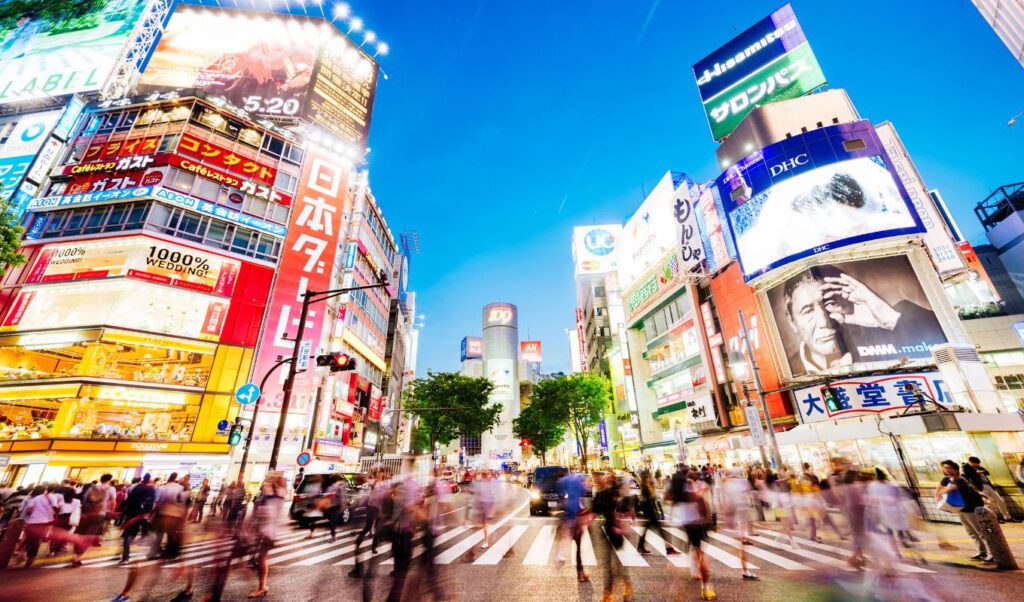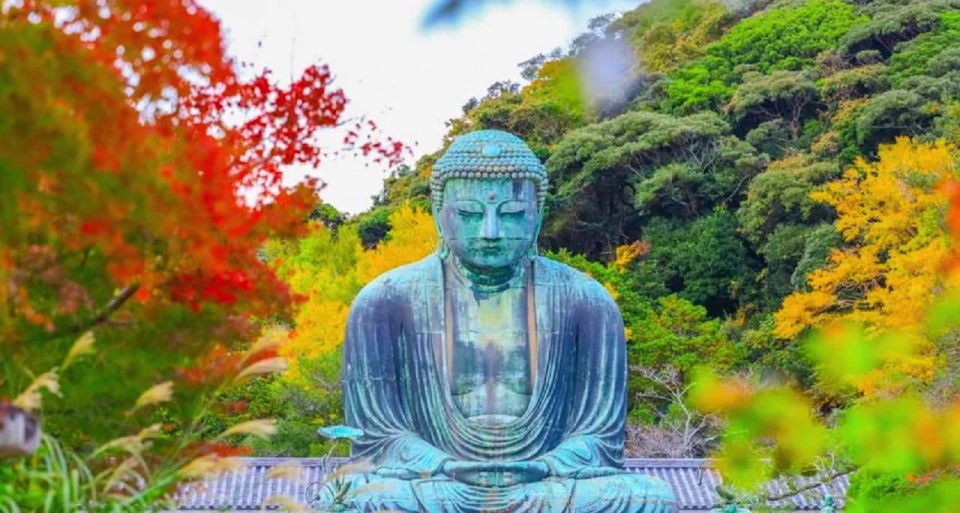Nestled in the heart of Tokyo like a time capsule of tradition and athleticism, Ryogoku Sumo Town beckons visitors to uncover the hidden gems of its history and culture.
From the thunderous stomping of sumo wrestlers to the savory aroma of Chanko-nabe, every corner of this vibrant district tells a story of resilience and dedication.
But what secrets lie within the ancient walls of sumo training grounds and the flavorsome pots of nourishing Chanko-nabe that keep these athletes going?
The allure of Ryogoku Sumo Town’s past and present is as captivating as it is enlightening, promising a journey through time and taste that is not to be missed.
Key Points
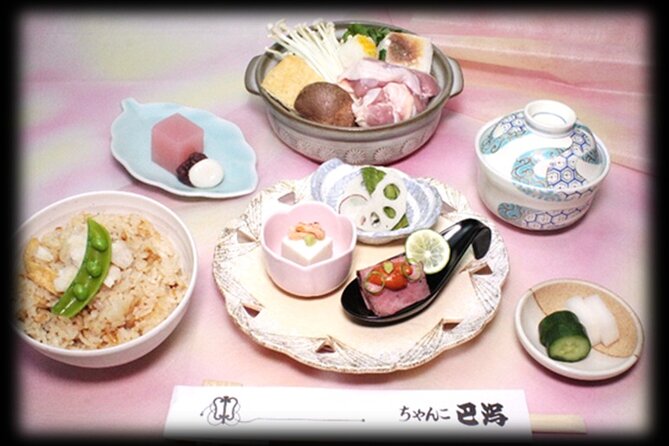
- Ryogoku Sumo Town embodies centuries-old sumo wrestling traditions and rituals.
- Sumo wrestling in Ryogoku is deeply intertwined with Japanese cultural values and heritage.
- Chanko-Nabe lunch offers an immersive experience into sumo traditions and unity.
- Witnessing sumo training sessions showcases the wrestlers’ dedication and rigorous lifestyle.
History of Ryogoku Sumo Town
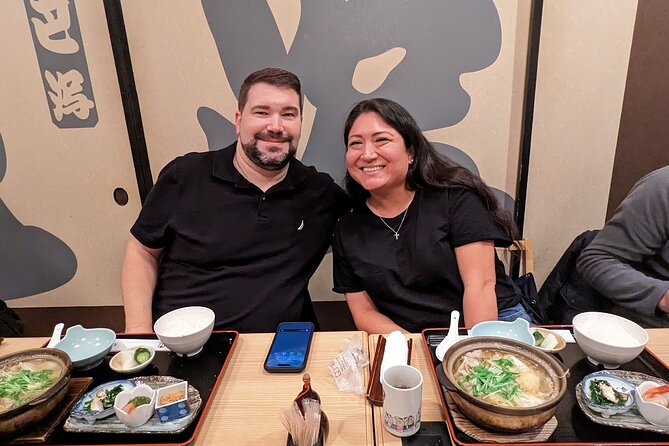
The history of Ryogoku Sumo Town traces back centuries, shaping Tokyo’s cultural landscape with its deep roots in the art of sumo wrestling.
Sumo rituals and tournaments have been integral to the fabric of this vibrant town, attracting locals and travelers alike to witness the traditional and awe-inspiring displays of strength and skill.
From the intricate pre-bout ceremonies to the intense matches that captivate spectators, Ryogoku Sumo Town has been a hub for sumo enthusiasts seeking a glimpse into this ancient sport’s rich heritage.
The town’s legacy isn’t just in the sport itself but also in the rituals and traditions that accompany it, making it a must-visit destination for those eager to explore the world of sumo wrestling.
Cultural Significance of Sumo Wrestling
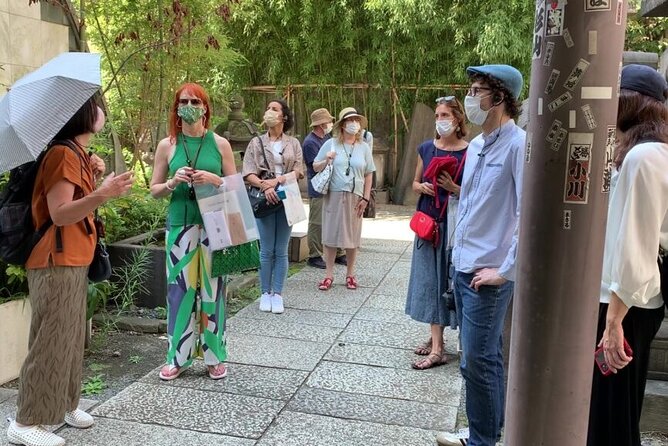
With its deep roots in Japanese tradition and a history spanning centuries, sumo wrestling holds immense cultural significance as a revered sport and art form in Japan. Sumo isn’t just a sport but a reflection of cultural traditions deeply ingrained in Japanese society.
The training rituals in sumo are rigorous and disciplined, emphasizing respect, dedication, and self-control. Wrestlers, known as rikishi, follow strict routines that include daily practices, traditional diets, and adherence to a hierarchical system within sumo stables.
The sport’s cultural significance extends beyond the ring, influencing aspects of Japanese life and values. Through sumo wrestling, individuals learn discipline, perseverance, and the importance of maintaining a connection to Japan’s rich cultural heritage.
Traditional Chanko-Nabe Lunch Experience
Delight your taste buds with a sumptuous traditional Chanko-Nabe lunch experience in the heart of Tokyo, Japan. In this unique dining experience, guests not only get to savor the flavorful hot pot dish but also gain insights into the cultural significance of Chanko nabe cooking and Sumo etiquette. The communal style of dining fosters camaraderie and allows visitors to enjoy the traditions of sumo wrestlers. Here is a glimpse of what to expect during this traditional Chanko-Nabe lunch:
| Chanko-Nabe Lunch Experience | |
|---|---|
| Chanko Nabe Cooking | Sumo Etiquette |
| – Learn how to prepare this hearty dish | – Understand the customs and manners observed during sumo meals |
| – Enjoy a variety of ingredients like vegetables, tofu, and meat in a flavorful broth | – Experience the communal aspect of sharing a meal with others |
| – Get hands-on experience in creating your own Chanko-Nabe | – Respect the hierarchy and seating arrangements typical in sumo dining settings |
| – Discover the history and significance of Chanko-Nabe in sumo culture | – Practice proper chopstick etiquette and dining manners |
| – Engage with knowledgeable guides who can enhance your understanding of this culinary tradition | – Enjoy the atmosphere of a traditional sumo meal |
Sumo Training and Practice Sessions
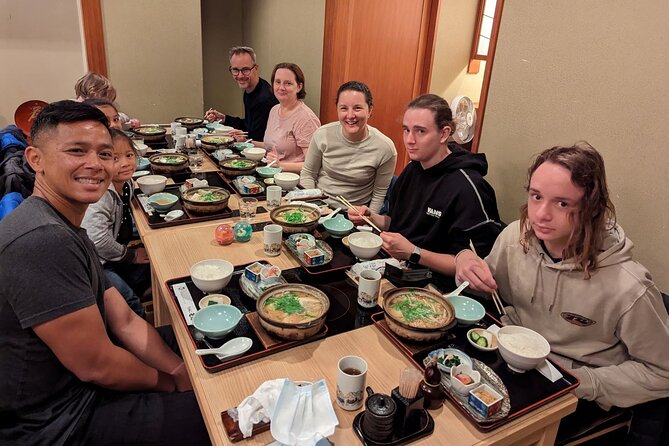
Enjoy the rigorous world of sumo wrestling by observing intimate training and practice sessions with experienced professionals in Ryogoku Sumo Town, Tokyo, Japan. Witness firsthand the dedication and discipline required as sumo wrestlers hone their skills through intense training sessions focused on perfecting sumo techniques.
These sessions provide a glimpse into the demanding lifestyle of sumo wrestlers, showcasing their commitment to rigorous training routines and specialized diets essential for maintaining their formidable stature. Gain insight into the traditional practices that have shaped sumo wrestling into the revered sport it’s today.
Famous Sumo Wrestlers of Ryogoku
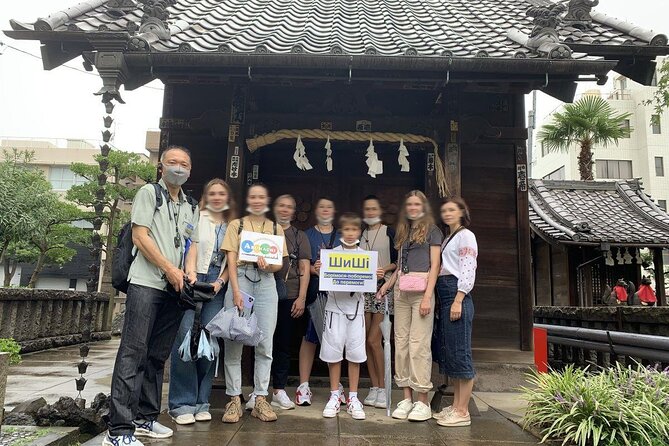
Famous sumo wrestlers from Ryogoku have left an indelible mark on the history and culture of the ancient sport. These renowned athletes have mastered a variety of sumo techniques and adhered to the traditional sumo diet to achieve greatness in the ring. Here are some of the most notable sumo wrestlers from Ryogoku:
| Wrestler | Achievements | Notable Sumo Techniques |
|---|---|---|
| Chiyonofuji Mitsugu | 31-time tournament champion, 7-time perfect record | Tsuri-dashi (lift-out), Oshi-dashi (push out) |
| Taiho Koki | 32-time tournament champion, longest winning streak | Yorikiri (force out), Uwatenage (overarm throw) |
| Futabayama Sadaji | 12-time tournament champion, 69 consecutive wins | Hatakikomi (slap down), Sotogake (outside leg trip) |
| Hakuho Sho | 44-time tournament champion, most wins in history | Harite (slap), Uwatedashinage (pulling overarm throw) |
Evolution of Sumo in Tokyo
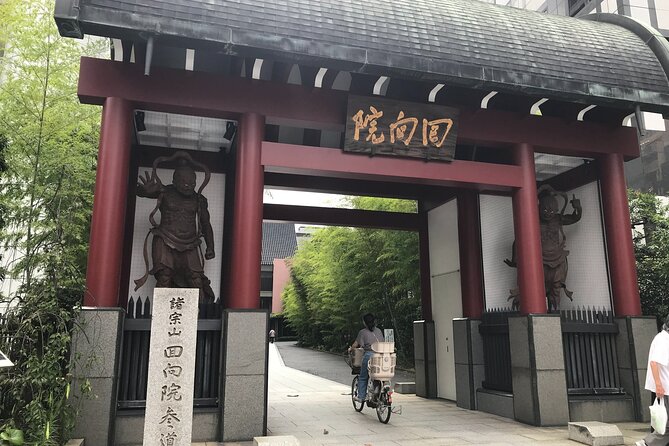
Renowned sumo wrestlers from Ryogoku haven’t only shaped the sport’s legacy but also played a significant role in the evolution of sumo in Tokyo. This evolution is marked by:
-
Preservation of Sumo Traditions: Despite modernization, Tokyo has managed to uphold the age-old customs and rituals associated with sumo wrestling, ensuring that the essence of this traditional sport remains intact.
-
Integration of Sumo into Urban Life: Tokyo has seamlessly integrated sumo into its bustling urban landscape, with sumo stables, training grounds, and tournaments becoming integral parts of the city’s cultural fabric.
-
Globalization of Sumo: The evolution of sumo in Tokyo has seen the sport transcend national boundaries, attracting a diverse international audience and contributing to its global appeal.
Ryogoku Sumo Town Landmarks
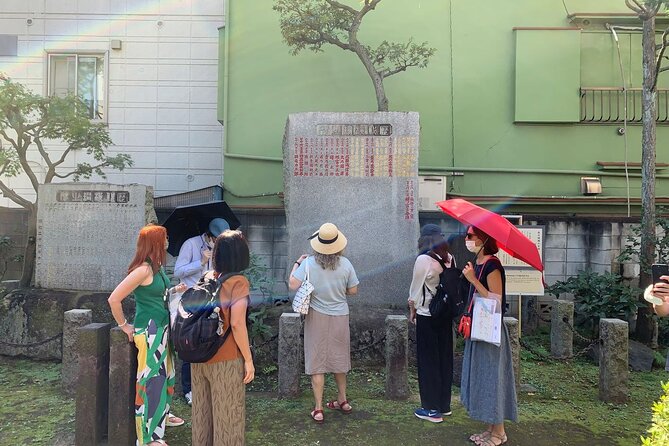
Discover the rich tapestry of Ryogoku Sumo Town through its iconic landmarks that narrate the history and essence of Japan’s revered sport. Two significant types of landmarks in Ryogoku are the Sumo tournaments and Sumo stables.
| Landmark | Description |
|---|---|
| Sumo Tournaments | Witness the grandeur and intensity of traditional Sumo tournaments in Ryogoku. |
| Sumo Stables | Visit the renowned Sumo stables where wrestlers train rigorously for competitions. |
These landmarks offer a glimpse into the world of Sumo, showcasing the dedication and skill required in this ancient sport. Whether observing the fierce competitions or experiencing the daily training routines at the stables, visitors can enjoy the captivating realm of Sumo in Ryogoku Sumo Town.
Culinary Delights of Tomoegata Chanko
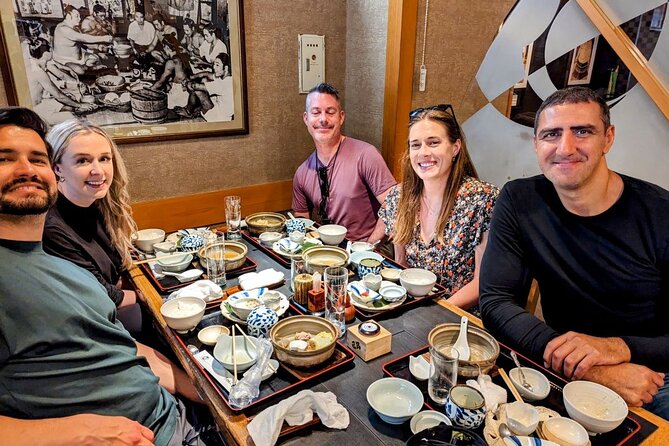
Enjoy the flavorful world of Tomoegata Chanko, where sumo wrestlers’ hearty and traditional meals await to tantalize your taste buds.
Here are some Chanko Nabe Secrets and Sumo Cuisine Exploration:
-
Rich Broth: The secret to the delectable Chanko Nabe lies in the rich broth made from a blend of dashi, soy sauce, and mirin, simmered to perfection.
-
Fresh Ingredients: Witness the sumo wrestlers’ dedication to fresh ingredients like tender chicken, succulent seafood, and a variety of seasonal vegetables that enhance the flavors of the dish.
-
Family-Style Dining: Experience the communal aspect of sumo cuisine by sharing a large pot of Chanko Nabe with friends and family, fostering a sense of togetherness and tradition.
Common questions
What Is the Significance of the Location of Ryogoku Sumo Town in Tokyo?
The location significance of Ryogoku Sumo Town in Tokyo lies in its role as a hub for traditional training and sumo wrestling culture. Visitors can enjoy the authentic atmosphere of this historic district.
How Are Sumo Wrestlers Traditionally Trained and Prepared for Matches?
Sumo wrestlers traditionally train through rigorous exercises, focusing on strength, balance, and technique. Match preparation includes mental readiness, rituals, and adherence to sumo traditions. This holistic approach ensures wrestlers are physically and mentally prepared for their bouts.
Can Visitors Participate in Sumo Training Sessions or Practices in Ryogoku Sumo Town?
Visitors can enjoy the vibrant world of sumo wrestling with a unique sumo experience. Engage in training sessions, explore sumo culture, and actively participate in the traditions of this ancient sport right in Ryogoku Sumo Town.
Are There Any Famous Sumo Wrestlers That Regularly Train or Compete in Ryogoku Sumo Town?
Famous sumo wrestlers, known for their exceptional skills and dedication, regularly train and compete in Ryogoku Sumo Town. Visitors can witness their rigorous training techniques, providing an authentic glimpse into the world of sumo wrestling.
How Has the Culinary Scene in Ryogoku Sumo Town Evolved Over the Years to Cater to Tourists and Locals Alike?
The culinary scene in Ryogoku Sumo Town has evolved over the years, embracing culinary fusion while still honoring local specialties. Restaurants have tailored their menus to cater to both travelers and locals, offering a delightful gastronomic experience.
Last Words
Experience the heart and soul of Ryogoku Sumo Town with a tour that delves into the rich history, cultural significance, and culinary delights of sumo wrestling.
From witnessing sumo training sessions to savoring a traditional Chanko-nabe lunch, learn about the world of sumo in Tokyo.
With a maximum of 8 travelers per tour, enjoy a personalized and unforgettable journey through this iconic Japanese sport.
Get set for an immersive experience like no other in Ryogoku Sumo Town!
